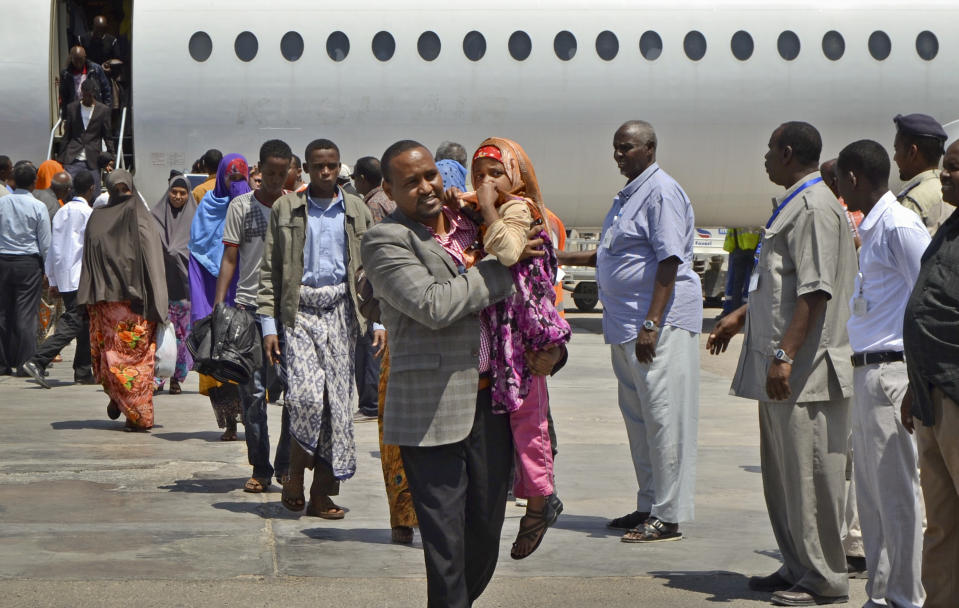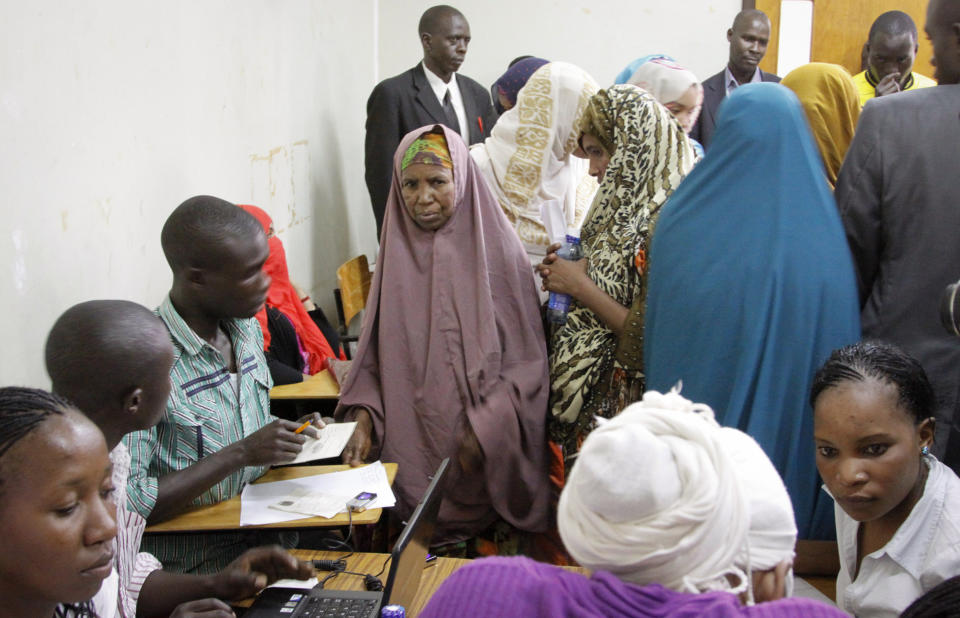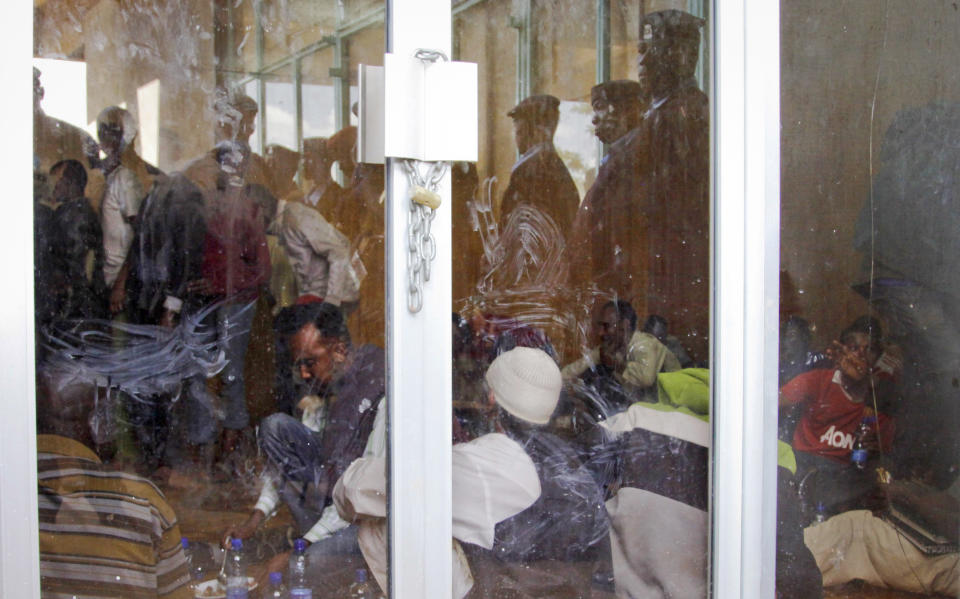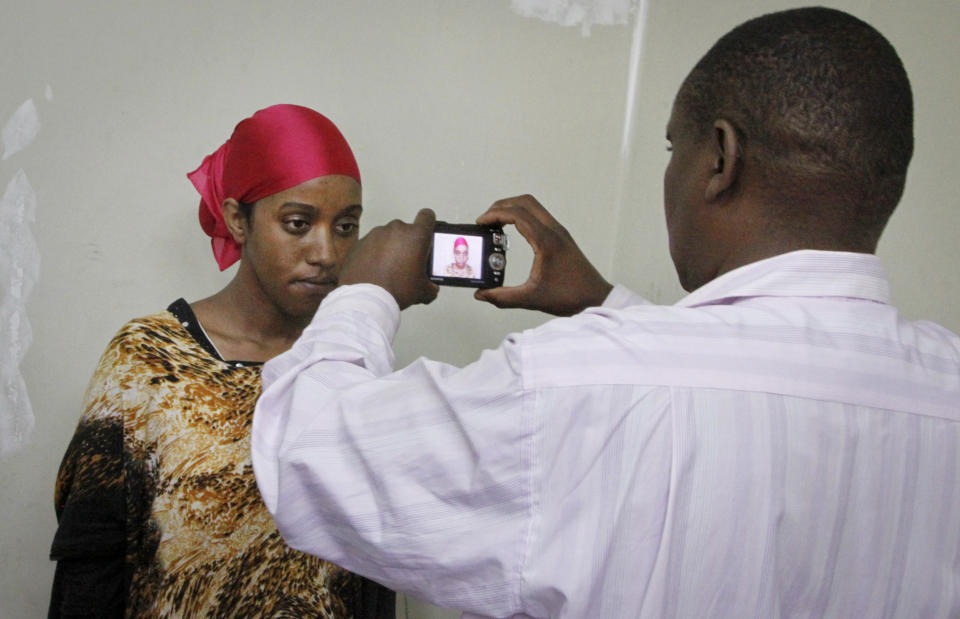Kenya deports 82 Somalis in terror crackdown
NAIROBI, Kenya (AP) — Kenya deported more than 80 Somali nationals Wednesday as part of an ongoing security crackdown by Kenyan authorities following recent terror attacks, Kenya's internal security minister said.
The sweep, which police say has led to the arrests of more than 3,000 people in five days, is being criticized by human rights activists who say it is targeting Somalis and suspects are not being allowed legal counsel. Rights defenders also say the deportations have circumvented the courts.
Interior Minister Joseph Ole-Lenku said those deported were in the country illegally or lacked proper documentation. The deportations were done according to the law and involved the Somali government, Ole-Lenku said.
Somali government spokesman Abdirahman Omar Osman said the Somalis were voluntarily returning home.
Those sent back to Mogadishu, however, said they had been forced back. Speaking after landing at Mogadishu's seaside airport, Halimo Abdi, a mother of five, said her family was forcefully deported. She and another deportee, Harun Ali, said they were both in Kenya legally and had proper documentation.
"We didn't come here at will but instead at gunpoint and force," said Ali, a Somali businessman who said he spent a week in prison before he was deported. "Our country has improved for good but it's not still safe. I wouldn't blame Kenya for this, but the way they mistreated us was utterly wrong."
Kenya police spokesman Masoud Mwinyi said Tuesday that 3,000 people have been detained and questioned by security agencies and that all but 447 have been released. Those suspects remain in custody under anti-terrorism laws that allow police to hold suspects longer than 24 hours, he said. Sixty-nine people have been charged in court.
Journalists and human rights groups were given access Wednesday to a sports stadium in the capital that has been converted into a detention facility for those arrested in the crackdown.
The government-funded Kenya National Commission on Human Rights said it has received reports of human rights violations by police officers. The commission said the detainees were being held in degrading and inhumane conditions.
At the stadium detention center, a man who identified himself as an Ethiopian refugee said he would rather stay in jail in Kenya than be returned home. He spoke on condition of anonymity for fear of reprisals.
The security operation was prompted by recent gunfire and explosive attacks in Nairobi and on the coast. Those attacks are blamed on the Somali militant group al-Shabab, which has vowed to carry out terror attacks on Kenyan soil to avenge the presence of Kenyan troops in Somalia.
Another person being held at the stadium who identified himself as Joshua Olang, 26, a non-Somali Kenyan, said he was arrested while walking home Monday. He said was asked to for identification which he had left at home where he lives alone. He complained about the amount of time it was taking to verify his identify.
Al-Amin Kimathi, a rights activist in Nairobi, said after touring the stadium on Wednesday that the government did not allow rights groups to inspect where the suspects were sleeping and said that activists were allowed only limited contact with suspects at the facility.
"It's a public relations exercise," he said.
Some Somali nationals who had been arrested in the crackdown but had proper documentation complained of being asked to pay a bribe of $230 to be released, Kimathi said. Police have denied allegations of bribe taking in the sweep, though demands for bribes by Kenya's police force are common.
Kimathi said people seeking asylum should not be deported without a tribunal or court hearing.
___
Associated Press reporter Abdi Guled in Mogadishu, Somalia contributed to this report.






